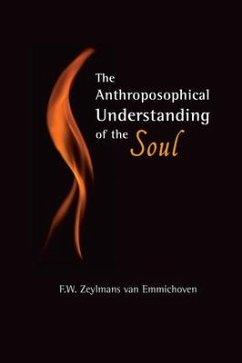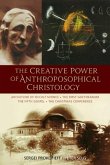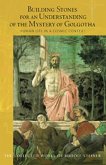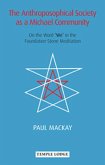A new psychology of the human soul... Use of the word soul to denote the inner world of human experience has not been fashionable in the psychology of recent times. However, as Zeylmans van Emmichoven stresses in this groundbreaking study, human inner life is always active as a whole entity, which calls for recognition of the soul as a significant aspect of the human entity. Drawing on the works of Goethe, Franz Brentano, Edmund Husserl, Max Scheler, and Rudolf Steiner, this original approach to psychology uses the soul's own self-perception as the method of clarifying the mysteries of the inner life. "The soul as an inner world participates in two worlds: an external world and...a still deeper, interior world." The soul is revealed as a mediator between the outer physical world (including the body) and the inner core of the human being, the "I," or true self. Through its intentional relationship to these two worlds, an ever-shifting stream of dynamic polarities courses continuously through the soul--love-hate, joy-sorrow, pleasure-displeasure, desire-satisfaction, laughing-weeping, life-consciousness. Many soul processes are explored in this context, including doubt, will, mental images, perceiving, judgment and decision, time and space, experience, and sexual identity, as well as how the soul expresses itself in the language of dreams, in everyday speech, in posture, in temperament, and in character. In addition, Van Emmichoven proposes yet another dimension of the human soul through the idea of the soul's "drive for development," which unfolds through the Goethean laws of polarity, enhancement, and metamorphosis. He paints a profound picture of the higher aim of human life--the soul's gradual liberation from physical bonds to become an organ for the "I," yet always balanced by the soul's inclination to become an organ for the body. Along this unfinished journey toward a full human existence, he describes the roles played by love, by wisdom, and by inner death and resurrection. As van Emmichoven points out, with this understanding of the soul, it is clear that there is an area where psychology and a philosophy of life overlap and, indeed, cannot be entirely separated. "If we were to define how the understanding of the soul represented in this book is related to contemporary schools of thought, there are three thinkers--Herder, Goethe, and Steiner--whose spiritual outlook has had a decisive influence. The fact that none of these thinkers became particularly well known in this field is not so surprising if we take into account the comprehensive wisdom and spiritual depth which distinguish their works" (from the introduction). This book is a translation from Dutch of De Menselijke Ziel (1946).
Hinweis: Dieser Artikel kann nur an eine deutsche Lieferadresse ausgeliefert werden.
Hinweis: Dieser Artikel kann nur an eine deutsche Lieferadresse ausgeliefert werden.








